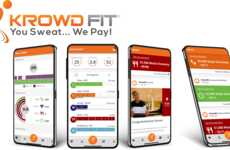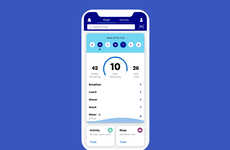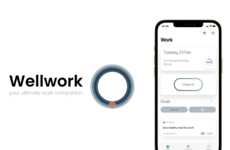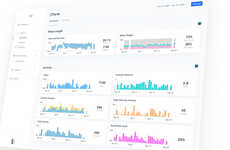
FwdHealth Helps Companies Cut Insurance Costs With Their Workers' Data
Alyson Wyers — July 18, 2014 — Tech
References: fwdhealth.co & techcrunch
In an effort to cut insurance costs for businesses, this app sends your health and fitness information tracked by other apps and wearable technology to your employer. FwdHealth links up with your other existing health and fitness applications on your phone and sends the collected data in an organized and aggregated report. While employees benefit from employer-given health insurance, it's the companies that pay the high premium costs if their workers don't take care of themselves.
This simple but intrusive innovation allows employers to track the health and wellness of their employees, giving them the opportunity to intervene and respond when appropriate. By showing their employees are healthy, employers also get the chance to cut insurance costs. FwdHealth also encourages companies to offer health incentives to their workers.
This simple but intrusive innovation allows employers to track the health and wellness of their employees, giving them the opportunity to intervene and respond when appropriate. By showing their employees are healthy, employers also get the chance to cut insurance costs. FwdHealth also encourages companies to offer health incentives to their workers.
Trend Themes
1. Employee Health Tracking - Employers are adopting apps and wearable technology to track the health and wellness of their workers, enabling them to intervene and respond when necessary.
2. Data-driven Insurance - Companies are leveraging worker-reported health and fitness data to reduce insurance costs by demonstrating the health of their employees.
3. Health Incentives - Businesses are incentivizing employee health and wellness through rewards and incentives programs.
Industry Implications
1. Healthcare Technology - The adoption of worker-reported health apps creates opportunities for healthcare technology companies to develop innovative solutions for tracking and analyzing employee health data.
2. Insurance - Insurance companies can leverage worker-reported health data to develop personalized insurance plans and pricing models based on individual health and wellness behaviors.
3. Human Resources - Human resources departments can implement employee health tracking apps to better manage wellness programs and proactively improve the health of their workforce.
3
Score
Popularity
Activity
Freshness























